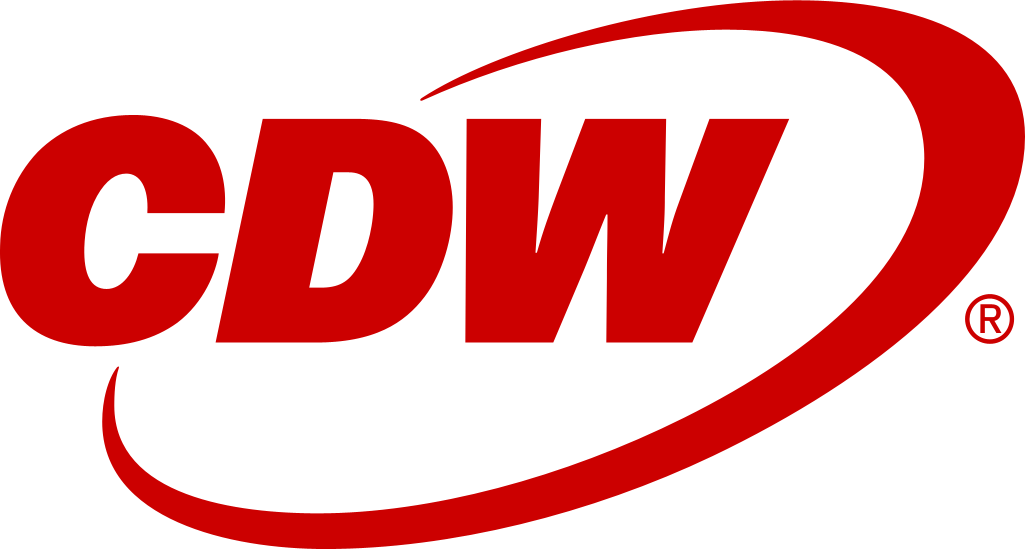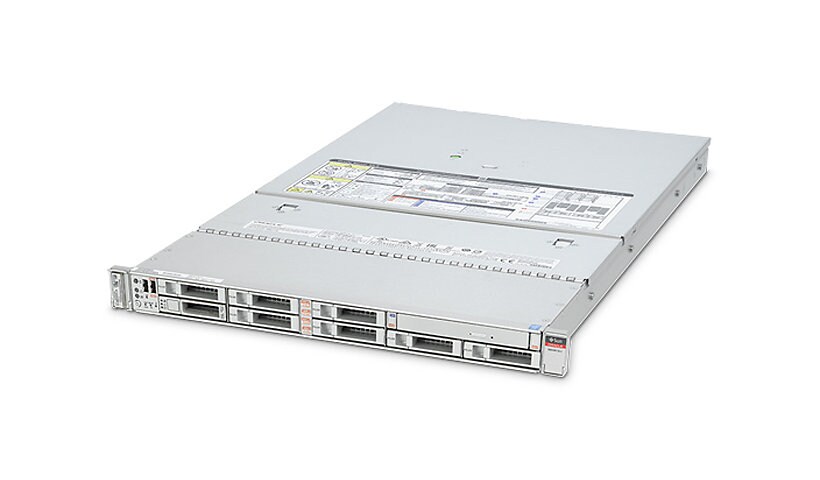Enhance your purchase
Oracle Private Cloud Appliance filler panel is rated
4.00 out of
5 by
2.
Rated 5 out of
5 by
Fabrizio Bordacchini from
Has high availability but the management can be better
What is our primary use case?
We are cloud providers so we provide platform services and infrastructures.
How has it helped my organization?
The main advantage of the PCA is licensing, for Oracle Database. It's the main reason why companies decide to deploy the PCA, or the software it runs (OVS, OVMM). On the PCA you also have live migration, which is a huge plus.
What is most valuable?
Live migration.
What needs improvement?
The PCA is built on Oracle VM Server for x86 and Oracle VM Manager. Ok, then you have OEM Cloud Control (unfortunately) on top. OVMM uses a clustered MySQL database, which contents are encrypted (probably to keep DBAs away, and force you to use the CLI). OEM Cloud Control uses an Oracle Database, not encrypted, that you can't touch!
As it is now (Feb 2020) the PCA has no automation, there is one Ansible module to start/stop VMs.. that's all the automation. You need to build tools on your own, in 2020, you think of AWS and laugh at the PCA..The Cloud Control interface is slow and crippled, there is no Identity and Access Management, i mean a proper solution. It is a pretty closed system.
The overall engineered system is years behind other vendors, i'm thinking of VMware, OpenStack, Azure Stack. The only selling point is the savings on Oracle licensing. The platform can only be improved.
In my opinion, and i might be horribly wrong here, i would rebuild the system from scratch. There is a great Infiniband infrastructure (SDN), wonderful, keep it. Oracle is moving away from Oracle VM Server to land on KVM, great.
Why can't you have one single database, maybe even based on Oracle Database 18c (or later). Not encrypted, with a license that allows sysadmins to use it to store data useful to the platform. An engine to manage the hypervisors, one engine to manage assets (system provisioning, customers and users), one engine to provide services to customers. Yes, i'm talking of getting rid of OEM! Technically it can be done, but Oracle won't let you. It's easier to have one million Java developers building plugins for what has now become a monster: OEM.
I think that Oracle is not really investing in the PCA because they are far behind the competition, and they can only compete by providing Hard Partitioning. Yeeah.. sorry, not enough to have my million pounds.
This kind of engineered system, in my vision, should have: System provisioning, Identity Management integrated. An Automation engine that taps into the main (a single database) repository to carry out tasks on the platform. Those actions that are scheduled in the internal Job Scheduler (which uses, again, the single database). Messaging between node is done using a message broker, no not AQ, a better one like RabbitMQ (and it's open source). They need a central location to collect logs, and run analytics on them (again, open source solutions here availables). More storage options, the ZFSSA works great for block storage and file (NFS). But you need to have access to object storage, where is it? You could use Apache Cassandra to do that.. (look at Cloudian). Monitoring: do we really have to say that OEM is not exactly the best way to do it? Even Nagios works better for monitoring. I would use collectd (open source) and RabbitMQ to transport metrics. Have Redis on one of the nodes used for management, and have an all in-memory repository, for realtime notifications/alerting (with a monitoring engine here).
When you have the basics, for those workloads that use Oracle Databases, you can introduce a CI tool (i have already built one). Like a version control system for Oracle Databases. That could be used to have automated deployments against the rdbms. Building CI pipelines at that point would be the next logical move. Don't forget that this kind of systems (because it's Oracle) should host an internal DBaaS infrastructure.
Again, i could be wrong on the subject. This is the platform that shines in my dreams. I'm trying to build it, but being alone makes the project long to complete. All i know is that it can be done, and it could be a wonderful platform for virtual machines, and databases, to graze in.
For how long have I used the solution?
I have been using Oracle Private Cloud Appliance for a year, and the software used in the PCA in a private cloud for another year.
What do I think about the stability of the solution?
Patching the PCA is not exactly like a walk in the park, it can be improved. When you are not patching, the platform is stable.
What do I think about the scalability of the solution?
It doesn't really scale well at cloud size.
How are customer service and technical support?
The technical support is average - it was much better in the past. You hardly get the answers you are looking for.
How was the initial setup?
The initial setup is not hard, the management after can be.
Which other solutions did I evaluate?
VMware ESXi/vCloud Director.
What other advice do I have?
My advice to others would be to wait before buying this program because the Oracle VM server is about to die and the PCA will probably evolve into using Oracle Linux KVM. This means that, if you buy the PCA, you will have to migrate your machines into the new platform. So they should just be aware of the fact that the software they're using is about to change and there will be a different management system, called Oracle Linux Utilization Manager. Everything will change. So, right now is probably not the best time to buy the PCA.
Additional features I would you like in the next release would be automation and better management. On a scale from one to 10, I will rate Oracle Private Cloud Appliance a six.
I think that it's quite powerful as a platform but there are way too much work to be done. For instance, if you buy this program there are so many things you must do first before you can actually roll out into production. You have to build the tools yourself to make the management easier and you have to understand cloud control and Oracle VM Manager. And the patching system is too faulty, because every time you patch something, you break something else. You patch a component, you break something else.
And in monitoring, for example, cloud control doesn't work well and there are loads of work to be done as it is right now. And that's why my rating is low.
Which deployment model are you using for this solution?
Public Cloud
If public cloud, private cloud, or hybrid cloud, which cloud provider do you use?
Other
Disclaimer: I am a real user, and this review is based on my own experience and opinions.Partner
Date published: 2020-02-18T00:00:00-05:00
Rated 5 out of
5 by
MohamedKhalifa from
A highly efficient choice for deploying scalable and reliable middleware applications
What is our primary use case?
We use it in conjunction with OVM Oracle VM Manager to create virtual machines for diverse Oracle middleware products, including Oracle Solar, PPM, Service Bus, and Logix. Our organization heavily depends on the middleware home, covering OCP, Oracle projects, performance monitoring, and troubleshooting. We also host a custom Java application primarily focused on Oracle Logix. The private cloud appliance encompasses essential hardware components, offering a holistic solution for our organization's infrastructure requirements.
What is most valuable?
The most valuable features include distinct storage within the Oracle PCA. This separate storage is crucial as it serves both primary and secondary purposes. Additionally, high-priority elements encompass Lava switches for network functionality. Recent efforts have focused on efficient patching of the entire PCA stack, covering the master node, computing nodes, network switches, and storage components.
What needs improvement?
In comparison to competitors like VMware, there's a perceived need for Oracle to enhance OVM, making it more flexible and user-friendly. We believe that improvements in this aspect would contribute to a more seamless and accessible experience for administrators.
For how long have I used the solution?
I have been working with it for almost four years.
What do I think about the stability of the solution?
I would rate its stability capabilities ten out of ten.
What do I think about the scalability of the solution?
The scalability of the system is impressive, as the rack allows for the addition of up to sixteen Kubernetes, showcasing a highly scalable architecture. We have around fifty thousand users. I would rate it ten out of ten.
How are customer service and support?
I would rate the technical support as a perfect ten, absolutely brilliant.
How would you rate customer service and support?
Positive
How was the initial setup?
I would rate the initial setup as a solid ten out of ten. The process is remarkably straightforward, making it easy to install, configure, and deploy.
What about the implementation team?
Regarding DCA and all Oracle engineering systems, the initial setup process is managed by SCS and Oracle Advanced Customer Support, not the customer. They handle the entire installation and configuration. The initial installation and configuration may take several days up to a month. However, once that phase is complete, deploying virtual machines is a quick process, often taking just a minute.
What's my experience with pricing, setup cost, and licensing?
It is relatively cost-effective. It's not overly expensive and offers good value. I would rate it seven out of ten.
What other advice do I have?
I highly recommend using it, particularly for middleware applications. However, I advise against installing databases on PCA because it is not specifically designed for that purpose. For database installations, it's more effective to consider Oracle Database Appliance or Oracle Exadata. Overall, I would rate it ten out of ten.
Which deployment model are you using for this solution?
Public Cloud
If public cloud, private cloud, or hybrid cloud, which cloud provider do you use?
Other
Disclaimer: I am a real user, and this review is based on my own experience and opinions.
Date published: 2023-11-16T00:00:00-05:00

